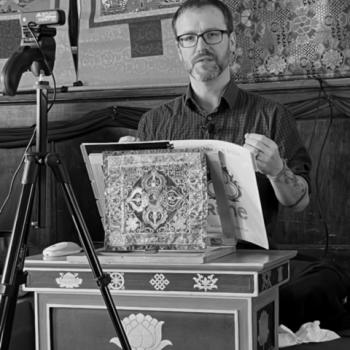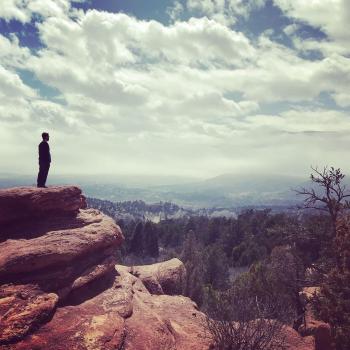Whenever I teach a meditation class I always ask the people what they think meditation is. When I do that I get a range of different answers. I’m going to tell you what I think meditation is.
In her book Buddhism for Beginners by Thubten Chodron, she says, “Meditation means habituating ourselves to constructive, realistic, and beneficial emotions and attitudes. It builds up good habits of the mind. Meditation is used to transform our thoughts and views so that they are more compassionate and correspond to reality.”
Meditation is a practice to help us nurture good mental habits. Meditation helps us redirect our thoughts and views so they are more compassionate and so we learn to see the world more clearly. We’re trying to put down our emotional baggage and the distractions we have all the time and to just be in the world and fully present. So often in life we aren’t present. We spend a lot of time worrying about things that don’t even happen. We spend so much time distracted that it’s like we’re on autopilot and we have trouble paying attention to the world around and listening to others. Meditation can help with all that. It’s training our minds.
Thubten Chodron goes on to say, “Meditation is not simply relaxing the body and mind. Nor is it imagining being a successful person with wonderful possessions, good relationships, appreciation from others, and fame.”
People have all kinds of ideas about meditation. It’s not magic. It’s not usually complicated. It won’t give you special powers and you won’t immediately be really good at it (whatever good at it means). And meditation isn’t zoning out, trying to get away from the world. Meditation is more about zoning in. It’s where we really get into the world in a direct, open, and honest way. It’s training to be here instead of somewhere else all the time.
Thubten Chodron continues by saying, “By building up good habits of the mind in meditation, our behavior in daily life gradually changes. Our anger decreases, we are better able to make decisions and we become less dissatisfied and restless.”
That’s what we’re really talking about. When we meditate we are doing this to develop skills. This takes time and things happen slowly. I like to compare it to lifting weights. No one goes to the gym expecting to be able to lift 200 pounds in the first week. It takes time to build those muscles. Our mental habits are the same way. We train our minds by doing these practices. We train in concentration, we train in awareness, we train in compassion. And we keep working at it. We keep practicing, even when it’s hard. We keep practicing even when we don’t feel like it.
And that’s how we walk this path.
========================================================
if you want to buy Thubten Chodron’s book, you can do so here:












